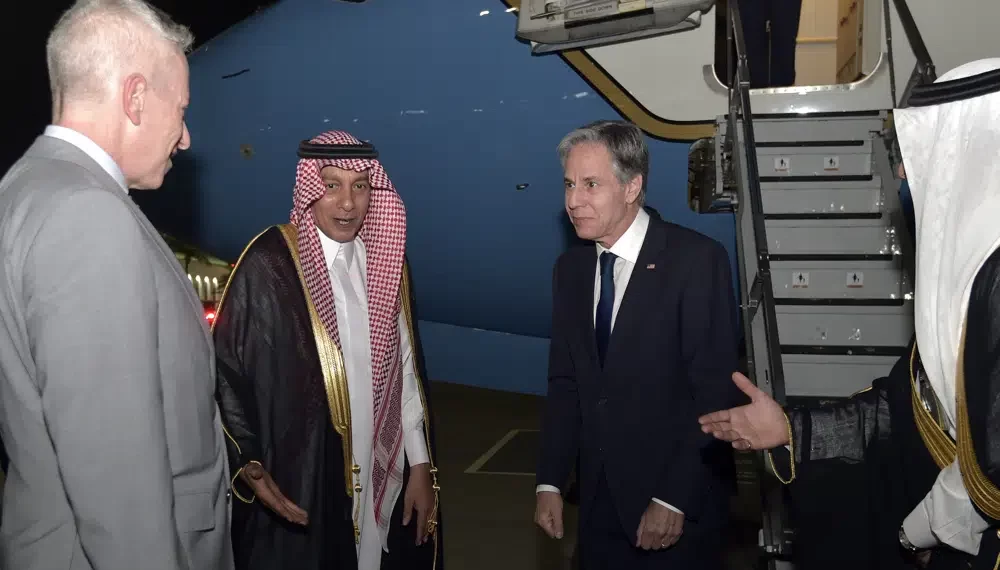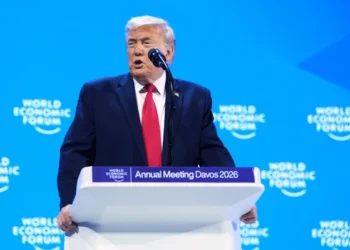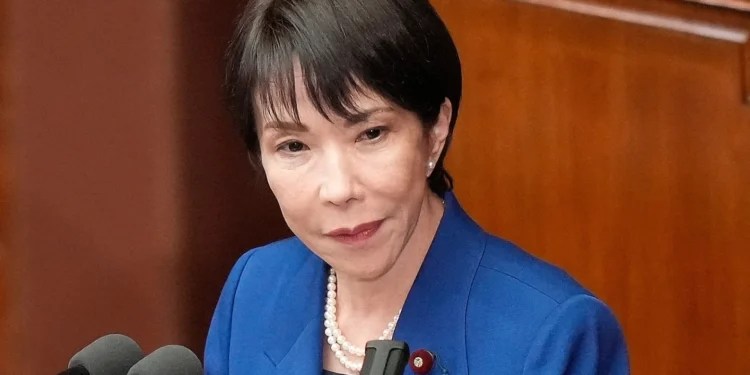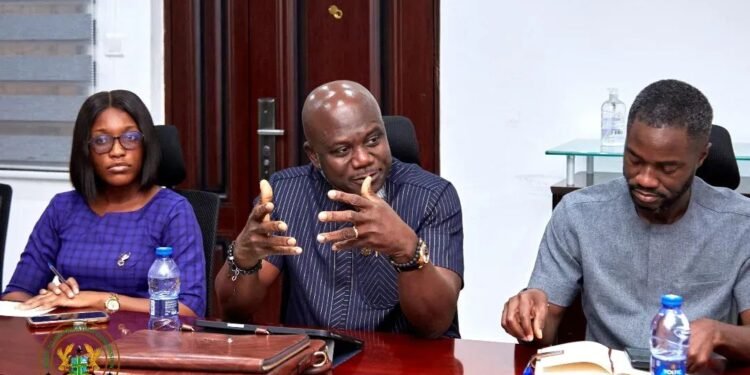In the midst of tensions between Riyadh and Washington, U.S. Secretary of State Antony Blinken landed in Saudi Arabia, and subsequently met with Crown Prince Mohammed bin Salman. Since assuming the US top diplomatic position, Blinken has visited Saudi Arabia twice. This time, the kingdom under Prince Mohammed, has shown greater willingness to defy American policies.
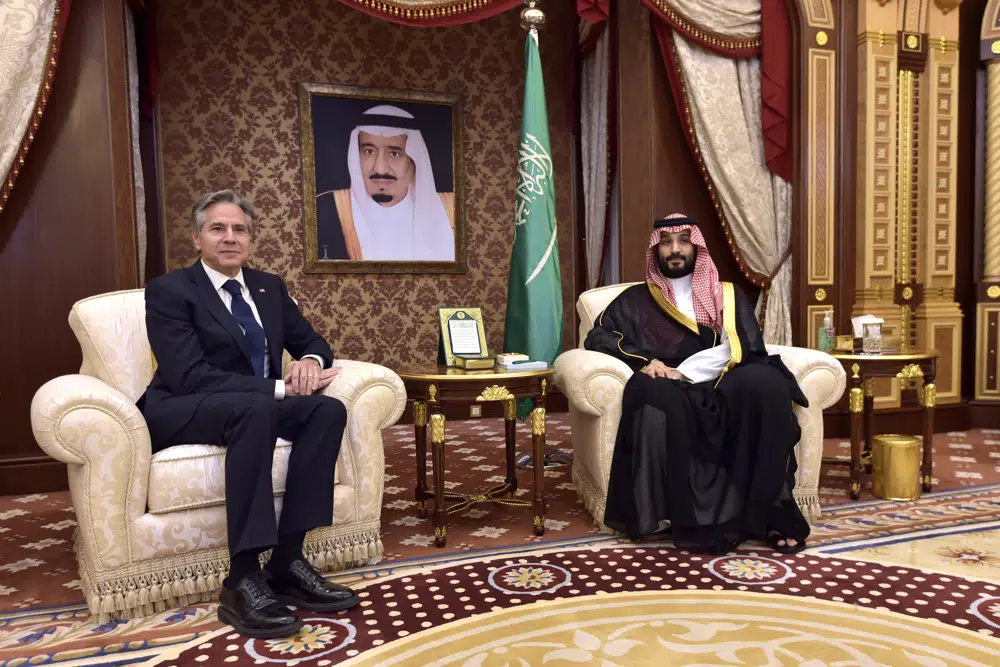
Washington and Riyadh have disagreed over the delivery of crude oil to international markets, and Riyadh’s readiness to work with Russia in OPEC+, and its efforts to negotiate a settlement with Iran through Chinese mediation are some examples. In addition, Biden promised to declare Saudi Arabia a “pariah” for allegedly killing Washington Post contributor, Jamal Khashoggi in 2018.
However, Riyadh still depends on the United States, along with other Gulf Arab countries, to provide security for the entire Middle East, but recent disagreements over Iran’s nuclear program have further worsened the ties between the two nations, thus Saudi Arabia and the United States.
In Sudan, where violence between the Sudanese Army and the RSF have persisted for weeks, Riyadh and Washington have also been collaborating to establish a permanent cease-fire. The United States and Saudi Arabia also want the war in Yemen to end.
“Under the hood, especially when it comes to security and a few other matters like that, the relationship is stronger than it was a year ago,” Hussein Ibish, a scholar at the Arab Gulf States Institute in Washington stated. “It looks more strained and in some superficial ways it is, but it is overall stronger.”

Moreover, having taken part in prisoner exchanges during the Kremlin’s assault on Ukraine, Saudi Arabia has been keen cooperating internationally. During the Arab League summit weeks ago, the kingdom received the President of Ukraine, Volodymyr Zelenskyy, and the sanction Interior Minister of Russia.
However, the Biden administration does not concern about oil prices, which currently sell below $100 per barrel, with regards to gas prices during the summer driving season. As ties with China and Russia improve, Washington undoubtedly hopes to take advantage of its defense partnership with Saudi Arabia.
According to Ibish, when it comes to Congress halting arms supplies to the country, Biden can’t offer the Saudis the assurances they desire. “Khashoggi still haunts the halls of Congress. I don’t think that’s over in Washington,” Ibish remarked. “The rest of the world has advanced, but I don’t think Congress has moved on.”
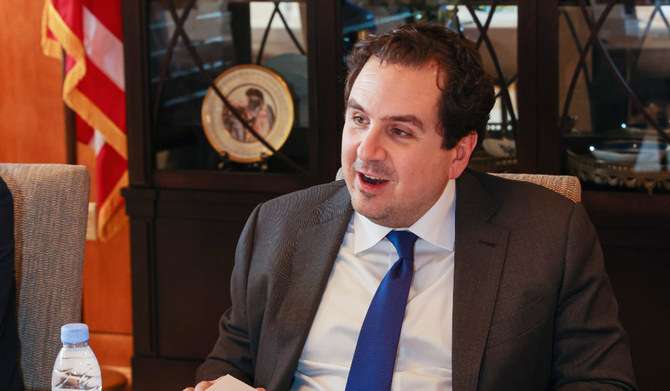
In response to a question about whether Blinken would bring up human rights concerns, including Khashoggi’s death, the Deputy Secretary for Arabian Peninsula Affairs, Daniel Benaim said last week that, “human rights are pillars of how this administration engages with countries around the world and in this region.” Benaim declined to go into more detail.
“I think what you’ll see on this trip is a vision of the U.S.-Saudi relationship that’s both rooted in our historic mainstays of cooperation in areas like defense and security and counterterrorism, includes ongoing important regional diplomacy when it comes to Yemen and Sudan, and looks for opportunities for regional de-escalation and regional integration. We won’t leave a vacuum for our strategic competitors in the region.”
Deputy Secretary for Arabian Peninsula Affairs, Daniel Benaim.
The State Department stated that, Antony Blinken and Prince Mohammed spoke about their “shared commitment to advance stability, security, and prosperity across the Middle East and beyond” when they met earlier today. The statement continued that, “The secretary also emphasized that our bilateral relationship is strengthened by progress on human rights.” Also, the meeting was acknowledged in a Saudi press statement, but no further details were provided.

Blinken’s trip follows after Jake Sullivan, Biden’s national security advisor, visited Jeddah in May. The Prince also received Nicolás Maduro, President of Ecuador, and a long term enemy of the United States, for a meeting, according to Saudi official media.
Antony Blinken would also meet with the foreign ministers of the Gulf Cooperation Council in addition to meeting Prince Mohammed and other Saudi officials whiles in Riyadh. Bahrain, Kuwait, Oman, Qatar, Saudi Arabia, and the United Arab Emirates are among the six nations that make up the GCC.
READ ALSO:Sunak To Discuss Trade Issues With Biden

